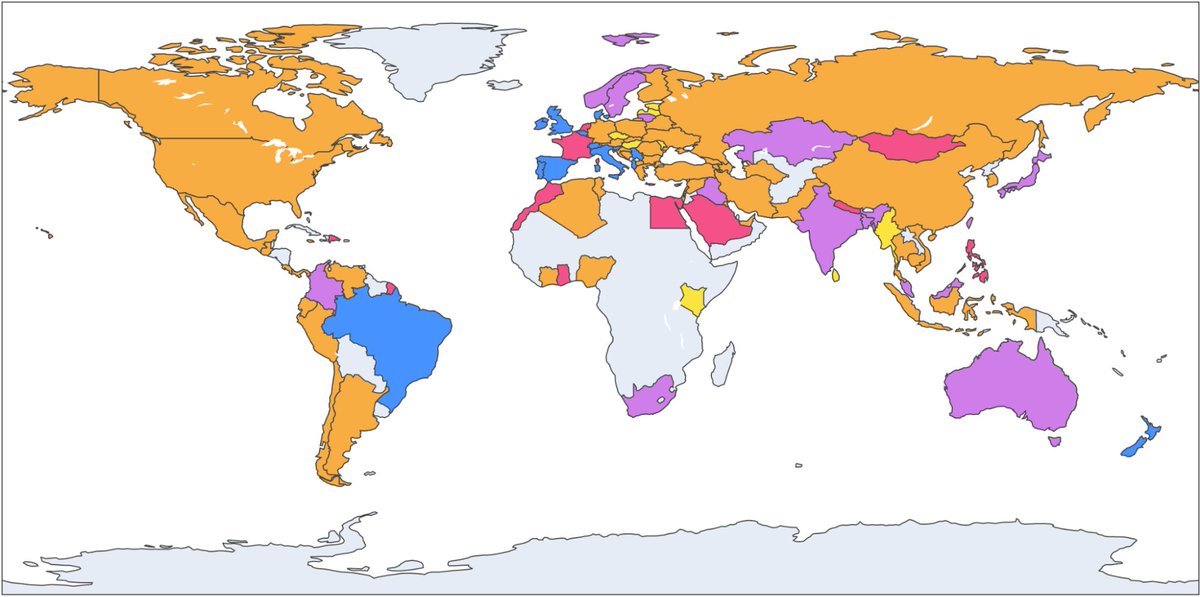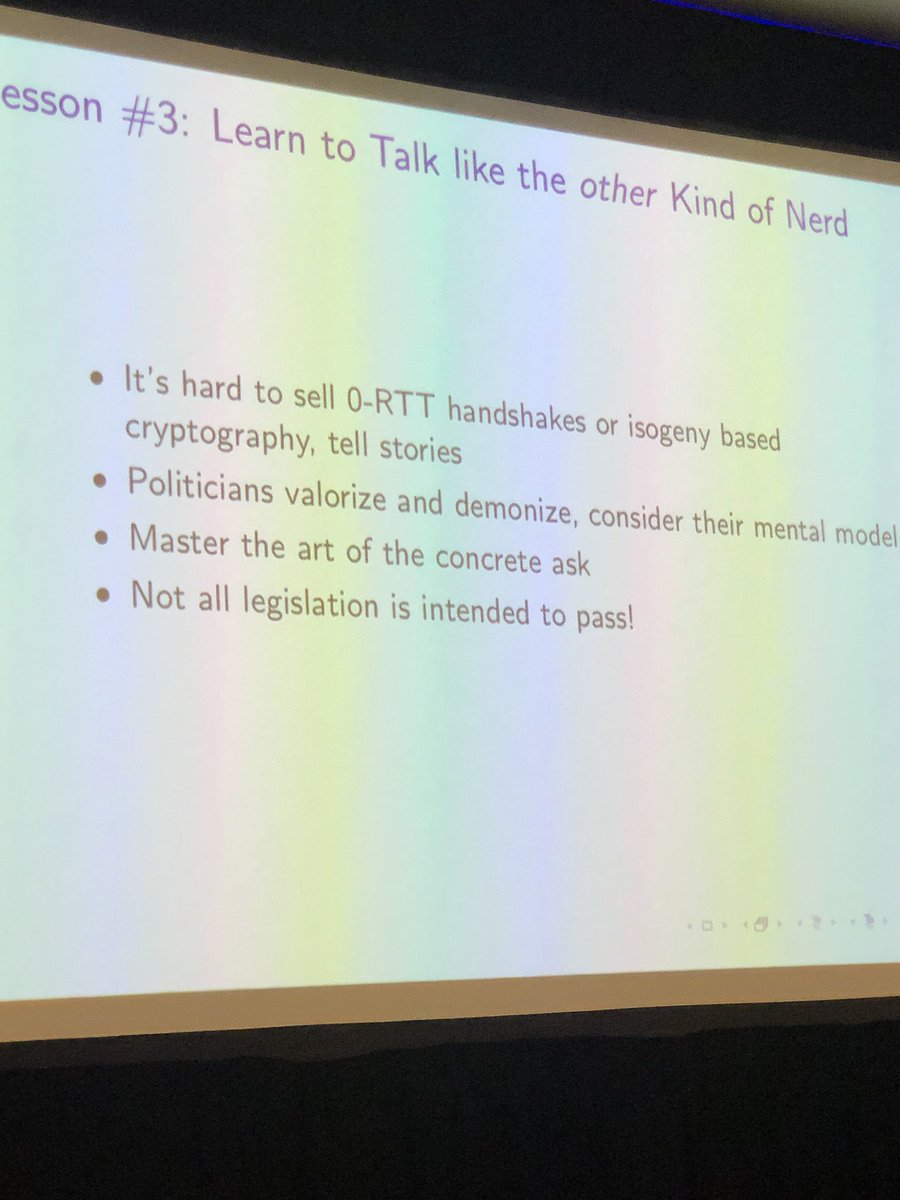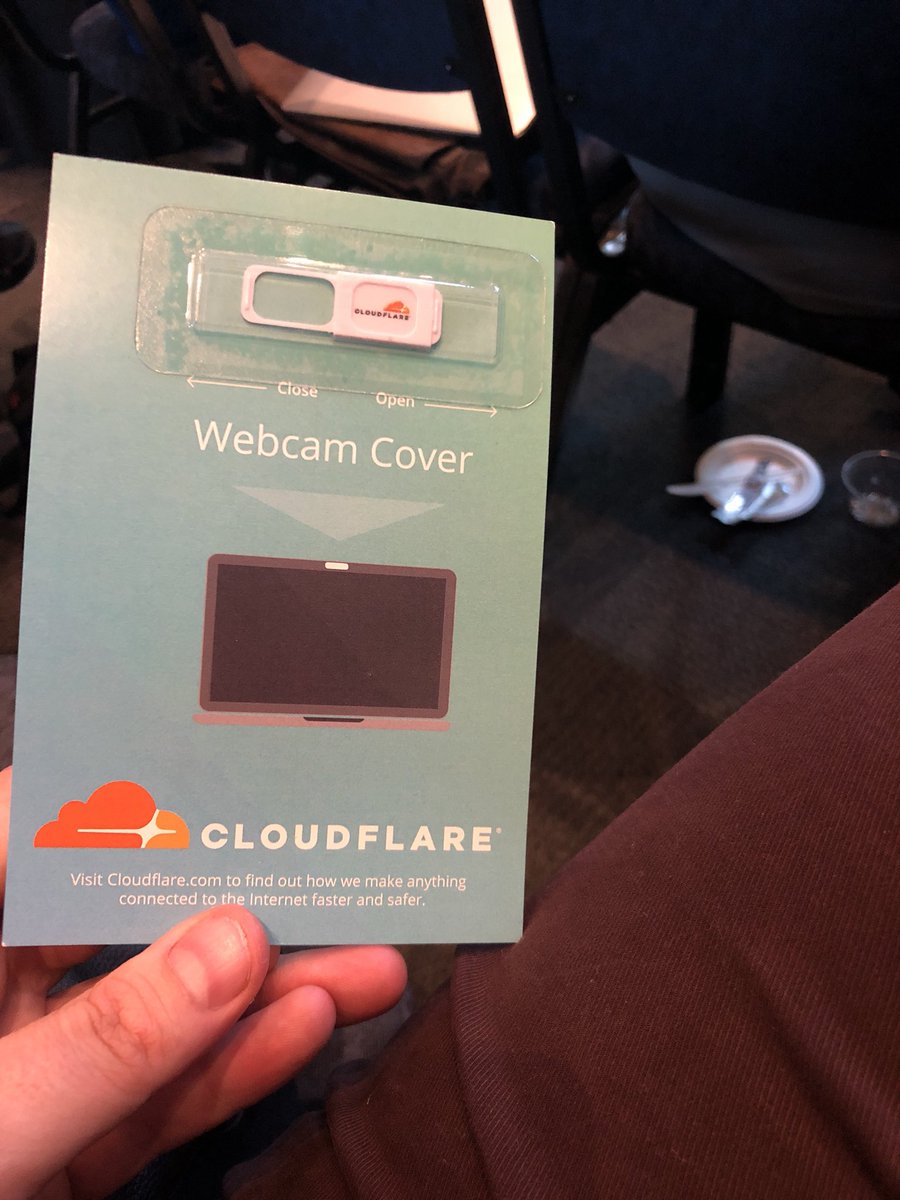
security/networking/cryptography research and development
Bluesky: https://t.co/2K4XS0AjTa
How to get URL link on X (Twitter) App



 The plumbing of the Internet is mostly invisible. We take it for granted that the Internet just works™ but an amazing amount of machinery is operating under the hood to coordinate the transfer using languages and protocols guided by standards set by groups like the IETF.
The plumbing of the Internet is mostly invisible. We take it for granted that the Internet just works™ but an amazing amount of machinery is operating under the hood to coordinate the transfer using languages and protocols guided by standards set by groups like the IETF. 






 We just heard from Adrian Stanger from the NSA. There is high confidence in the NIST process and no plans to invest in QKD. Algorithm recommendations (key agreement and signatures) to be made around 2023-24. There are no plans to replace AES-256 or SHA2-384.
We just heard from Adrian Stanger from the NSA. There is high confidence in the NIST process and no plans to invest in QKD. Algorithm recommendations (key agreement and signatures) to be made around 2023-24. There are no plans to replace AES-256 or SHA2-384.